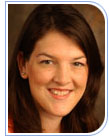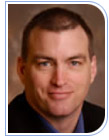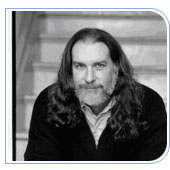

|
The Institute of Human Rights at Emory provides
an opportunity for Emory faculty and students to further their
understanding of the theories and issues of human rights. Faculty
in several schools at Emory University—including the Emory
College, the Graduate School of Arts and Sciences, the School
of Law, the Rollins School of Public Health, the Goizueta Business
School, the Nell Hodgson Woodruff School of Nursing and the
Candler School of Theology—have been involved in building
an academic human rights program at Emory University.

The Institute of Human
Rights is administered by an Executive Director and two programmatic
directors as detailed below.

Dabney Evans, 
Executive Director
Dabney
Evans is Executive Director of the Emory University Institute of
Human Rights. She received her doctoral degree in 2011 in law from the University of Aberdeen (United Kingdom) and her Master of Public Health degree in
1998. Currently a Senior Associate Faculty in the Hubert
Department of Global Health at the Rollins
School of Public Health at Emory University. Evans teaches courses
in "Interdisciplinary
Perspectives in Human Rights" and "Health
and Human Rights." In addition, Evans has served as a training
instructor to more than 1,000 public health practitioners from over
20 countries.
Evans
was co-principal investigator for the “Tibet Trauma Study”
which examined trauma, mental health and perceptions of human rights
among adolescent Tibetan refugees. Evans was conference planning
chair of the international conference, “Lessons Learned from
Rights Based Approaches to Health” which brought together
more than 350 participants from 40 countries in April 2005. Between
2002-2004, Evans was coordinator of an intensive public health study
trip to Havana, Cuba for Master’s level students and now serves
on the Medical Education in Cooperation
with Cuba (MEDICC), a non-governmental organization whose aim
is to promote sharing of medical practice, education, policies and
research that contribute to improving health care quality and accessibility
in the USA, Cuba and throughout the world.
Evans a member of the Delta Omega Public Health Honor Society, Omicron Delta Kappa National Service Honor Society and chair of the International Human Rights Committee of the American Public Health Association. Evans is a member of the 2012 Shadow Reporting coalition which will highlight the United States record on human rights and racial discrimination and obligations under the International Convention on the Elimination of all forms of Racial Discrimination.
She serves on the advisory boards of the Center for Trauma and Torture Survivors, the Refuge Media Project and the Hubert H. Humphrey Fellowship. Evans is faculty advisor to two student groups: Physicians for Human Rights (PHR) based in the Emory University Medical School and Human Rights Action (HuRA) based in the Rollins School of Public Health. In 2007 she was the recipient of the Martin Luther King Jr. Community Service Award.
Evans has recently published a curriculum based on the HBO documentary film Sergio, a biography of former UN High Commissioner for Human Rights Sergio Viera de Mello. She is co-editor of "Rights Based Approaches to Public Health" the proceeds of a which go towards the APHA Paul Hunt Scholarship to support student attendance at the Annual Meeting of the American Public Health Association. She also plans to publish her recently completed dissertation research which focuses on the nondiscriminatory provision of the right to health in several countries.
Evans is an avid capoeira practitioner with the group Passo A Frente and fluent in Portuguese.

David R. Davis, 
Director of Educational Programs
David R. Davis is Director of Educational
Programs for the Institute of Human Rights. As such
Davis coordinates the educational programming associated with
the graduate certificate in Human Rights as well as the proposed
undergraduate minor in human rights. Davis’s primary
appointment is in the Department
of Political Science at Emory University.
Davis’s research interests include: international relations,
domestic politics and international conflict, political violence
and ethnic conflict, defense economics and the political economy
of development. His teaching interests include: international
relations, human rights, political violence, research methods.
Current research projects include; the durable resolution
of ethnic conflict, democratization and ethnic conflict, crisis
escalation and domestic-international conflict linkages.
Currently Davis is focusing primarily on the development of
a track in human rights via the International Studies major
within the Department of Political Science.

Edward Queen,

Director of Research Programs
Edward L. Queen is
Director of Research Programs for the Institute of Human Rights.
He directs the D. Abbott Turner Program in Ethics and Servant
Leadership at Emory University’s Center
for Ethics. He received his B.A. from Birmingham-Southern
College, his M.A. and Ph.D. degrees from the Divinity School
of the University of Chicago, and his J.D. from the Indiana
University School of Law-Indianapolis. Prior to joining the
Center for Ethics, Queen served as Faculty and Curriculum
Development Advisor to the Faculty of Law of South East European
University, Macedonia where he taught courses on the transition
to democracy. Among the human rights organizations with which
he has worked are the Helsinki Committee for Human Rights
of the Republic of Macedonia and the Palestinian Human Rights
Monitoring Group. Queen also served as administrator of the
International Human Rights Internship Program at the I. U.
School of Law—Indianapolis. The founding director of
both the Religion and Philanthropy Project at the Indiana
University Center on Philanthropy and of the Islamic Society
of North America's Fellowship Program in Nonprofit Management
and Governance and a former program officer at Lilly Endowment,
Inc., Queen has consulted with numerous nonprofit, governmental,
and educational organizations, including the, the Pew Charitable
Trusts, Independent Sector, USAID, and the Corporation for
National and Community Service.

Photo Credit (top image): UNESCO/Henri Hiribarne
|

